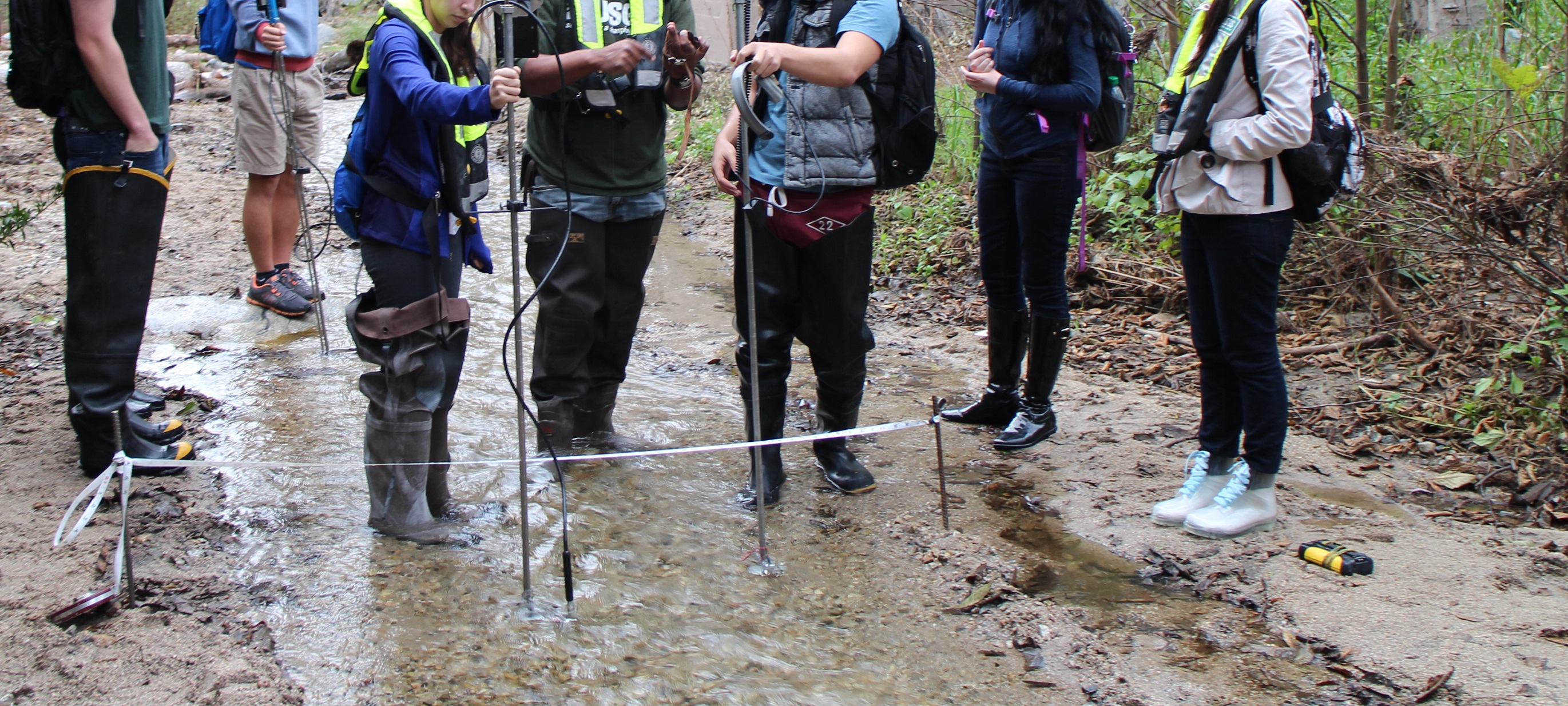
Doctoral Programs
Water Resource Systems Engineering Ph.D.
Minimum Preparation for Major Field Students
Examinations
1. Hydrology
* Surface Water Hydrology
* Rainfall Runoff Models Statistical Analysis of Droughts Stochastic Hydrology Mathematical Hydraulics
* Groundwater Hydrology
* Groundwater Flow Equations Mechanics of Well Flow NumericalMethods in Groundwater Management
Parameter Identification and Inverse Problems Conjunctive Use of Surface Water and Groundwater
2. Water Resources Systems Analysis
* Water and Natural Resources Economics
* Price of Water Benefit Cost Analysis Value Impact Analysis Risk Benefit Analysis
* System Analysis
* System Represenation and Optimization Reservoir Planning and Operational Models Otpimization of Real-Time Operation of Hydrosystems Optimal Timing, Sizing and Sequencing of Water Resources Projects Multiobjective Planning
3. Contaminant Transport and Remediation in Groundwater
* Contaminant Transport
* Hydrodynamic Dispersion Mass Transport in Porous Media Analytical and Numerical Solutions Multiphase Flow Diffusion-Limited Transport Processes
* Remediation Studies
* Site Characterization Remediation Strategies Design of Soil Venting Systems Optimization of Remediation Designs
Recommended Course Preparation
Major Field Course Preparation: Students electring Water Resources Engineering as a major field of study will be required to concentrate their efforts in two of three areas. In the written portion of the preliminary examination, students are required to answer questions covering 8 different courses. The following undergraduate and graduate courses are included in the program:
Undergraduate
C&EE150: Engineering Hydrology
C&EE164: Waste & Hazardous Waste Management
Graduate
C&EE250A: Surface Water Hydrology
C&EE250B: Groundwater Hydrology
C&EE250C: Mathematical Modeling of Contaminant Transport in Groundwater
C&EE251: Water Resources Systems Engineering
C&EE252: Engineering Economics of Water & Related Natural Resources
C&EE253: Mathematical Models for Water Quality Management
C&EE260: Advanced Topics in Hydrology & Water Resources
C&EE265: Geohydrochemical Engineering .
Current Literature
In addition to the above courses the students are expected to be familiar with the body of knowledge contained in current journals in the student’s area of specialization.
Minor Fields
Students majoring in Water Resources Engineering will be expected to complete two minor fields composed of three courses each (at least two at the graduate level) or one minor field composed
of five courses (at least three at the graduate level). Additionally, they will be expected to fulfill the requirements of the department administering the minor field, such as a minor field examination or attendance at a seminar.
Minimum Preparation for Minor Field Students
Students wishing to minor in Water Resources Engineering will be expected to complete a minimum of three graduate courses in a coordinated sub-area under the direction of one of the field faculty members. Students electing Water Resources Engineering as a minor field will be given a written examination on their preparation as described above. Minor field students will be exempted from this examination if they obtain a grade point average of at least 3.25 in their minor field courses.
Journals
Advances in Water Resources Ground Water Hydrologic Sciences
IAHS Institution of Water & Environmental management
IWEM Journal of Contaminant Hydrology Journal of Hydraulic Engineering
ASCE Journal of Hydrology
Journal of Water Resources Planning & Management
ASCE Stochastic Hydrology & Hydraulics
Water International
IWRA Water Resources Bulletin
AWRA Water Resources Research
AGU
Texts
* Viessman, W., Lewis, G.L., and Knapp, J.W., Introduction to Hydrology, 3rd ed., Harper & Row, New York, NY, 1989. (C&EE150)
* Dawson, G.W. and Mercer, B.W., Hazardous Waste Management, New York, NY, 1986. (C&EE164).
* Chow, V.T., Maidment, D.R., and Mays, L.W.,
Applied Hydrology, McGraw Hill, New York, NY, 1988 (C&EE250A).
* Haan, C.T., Statistical Methods in Hydrology, The Iowa State University Press, Ames, Iowa, 1986.(C&EE250A)
* Willis, R. and Yeh, W.W-G., Groundwater Planning and Management, Prentice-Hall, Edgewood Cliffs, NY, 1987. (C&EE250B, C&EE260)
* Sun, N-Z., Mathematical Modeling of Groundwater Pollution, Springer-Verlag, 1993. (C&EE250C)
* Loucks, D.D., Stedeinger, J.R., and Haith, D.A., Water Resources Planning and Analysis, Prentice Hall, Englewood Cliffs, NY, 1981. C&EE251)
* Sassons, P.G. and Schaffer, W.A., Cost-Benefit Analysis, Academic Press, New York, NY, 1970. (C&EE252)
* Lapidus, L. and Pinder, G.F., Numerical Solution of Partial Differential Equations in Science and Engineering, John Wiley & sons, NY, 982. (C&EE253)
* Freeze, R.A. and Cherry, J.A., Groundwater, Prentice-Hall, Englewood Cliffs, NJ, 1979. (C&EE265)
